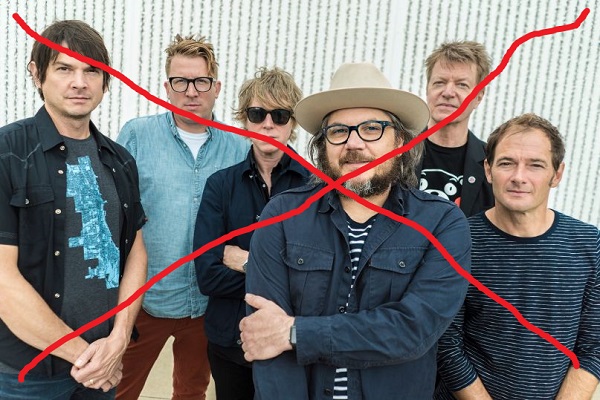I hate Dad Rock. Not the music, at least not categorically; I love it and hate it at more or less the same rate that I love and hate all of the other imaginary categories of music. No, it’s the term I hate.

You’ve heard the term, right? Basically means safe, nonthreatening rock (mostly) that appeals mostly to people over 35-ish. When I first heard the term, it meant the “classic rock” that my generation’s boomer parents were always listening to: Pink Floyd, Steely Dan, the Beatles, the Stones, Van Morrison, you know the drill. As Gen X has gotten gray and paunchy, I’ve started hearing Wilco, the New Pornographers, and the Mountain Goats get put into the file.
Some of that is music I like, a lot of it is music I hate, but the label bugs me either way. Part of it is the specific choice of modifier: “dad.” I don’t have kids, I’m not going to have kids, and I’m irked at the intrusion of child-having status as a qualifier in a situation where it doesn’t apply. But really, that’s not the problem; again, it’s not really the music that I love that’s getting the label (I was a Wilco superfan when I was younger, but I drifted away from them around 2007; coincidentally, around the time they started getting labeled as dad rock).
Really, my beef is with the fact of a label at all. Or, more specifically, of a label that’s pegged (indirectly but inexorably) to the age of the artist or audience. In the formulation “dad rock,” “dad” is acting as a modifier. It’s pointing out a subset of music that deviates from the default (think of the way that describing Sleater-Kinney as a “female band” implies a deviation from the default of a male band).
If you look at this default assumption clearly, it sticks out as another manifestation of the way that in the past few decades we’ve somehow all internalized the primacy of youth culture, all accepted that the arbiters of what’s good and cool and desirable in culture are people under 27ish (as I write this, an ongoing battle is somehow raging online between Martin Scorsese and fans of Marvel movies, so this dividing line is in no way restricted to music). This isn’t new or recent, and I don’t think it’s intentional. But it’s real. One of the many small things Mad Men was great about, in fact, was dramatizing it—note the way that the rank and file of Sterling Cooper all try to look older than they are in the first season, while in subsequent seasons the office gets swamped by people who look and act young.
But anyway, we’re talking about music. As far as “dad rock” as a term goes, it only takes a few short cognitive jumps to see that it’s essentially a code for “young people are and should be the culture’s arbiters of what music is good and cool. And there’s an implied corollary to the encoded formulation: “continuing to make music past 30ish or that appeals to people over 30 diminishes you.”
There’s absolutely nothing wrong with people around 20 and whatever music they like! It’s great that people of all ages like music! But the preferences of people in their 20s should be A standard of goodness, not THE standard of goodness. I don’t in any way want to say that Kids These Days should be listening to the music I like, which is the only real music, blah blah blah. We should all like what we like and not feel bad about it! But I’m really bothered by the implication that making music past 30 diminishes you.
Consider the Rolling Stones. They scared the shit out of parents in their youth. Then they stuck around too long, got old, and became punchlines. On one hand, I’m sympathetic to the idea that the Stones are a joke now; their last genuinely good album came out while I was learning to read, and I think it’s a sadly common thing for artists in all media to get so stuffed on wealth and privilege that they stop having something to say, and maybe the Stones would have saved some face if they’d hung it up in the late 70s or early 80s.
But on the other hand! Think of all of the other forms of music where age is looked on as a positive, not a disqualifer. Country music is refreshing about giving reverence to stars who live long enough to achieve elder statesman status. Jazz and classical might give special attention to prodigies, but nobody tells them to knock it off just for being around for a while. Inasmuch as people think about blues, there’s a strong idea that as a blues performer you pretty much have to be old to be “authentic.” But in rock, as you move past 30, you fall into the diminished other camp no matter how daring and weird you are. I head Sonic Youth get called dad rock a few times before they broke up.
This isn’t the end of the world by any stretch. But in the big picture, it’s not great that we live in a society that tells us it’s a bad thing to get old (and believe me, I know that however bad this is for men, it’s exponentially worse for women). Defining music listened to by people past 30 as deviant from the default is a small but pernicious way to reinforce that idea. So let’s all stop going along with the gatekeeping and just listen to the music we like.